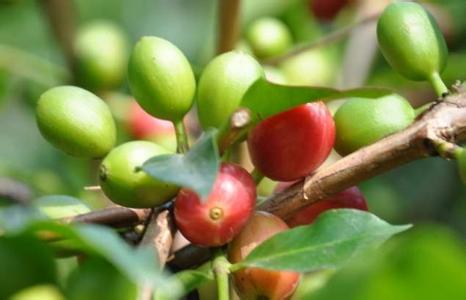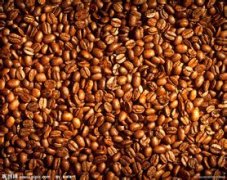A brief introduction to the description of taste and aroma characteristics of Ecuadorian boutique coffee with fresh and unique taste

Because of the unique role of the Galapagos Islands in the course of history, the Government of Ecuador has designated the Galapagos Islands as a national park, the land is no longer allowed to be reclaimed as new agricultural land, and the introduction and use of chemical fertilizers, pesticides, herbicides and other chemicals are strictly prohibited, so coffee produced in the Galapagos Islands is recognized as a natural product.
The famous South American brand, Ecuadorian Grade A coffee, has a large state-run seed value garden; 100% is produced in the natural vegetation zone of 1300-2000 meters highland, popular in Europe and the United States, and tastes exquisite world-class Arabica Arabica flavor at supermarket prices.
ES Coffee is a clean organic coffee grown on the slopes of the Andes in Latin America. It is 100% pure coffee, and the quality of our coffee has been guaranteed and improved by working to improve the economic and working conditions of the plantation, while maintaining the small scale of the coffee plantation and the biodiversity in the hospital. In addition, it is one of the very important economic sources of coffee origin, because it is all dried and packaged locally, which ensures that it is a very unique kind of coffee in the world! At the same time, it ensures its unique taste.
Ecuador is the highest Arabian coffee plantation in the world. Since the coffee tree was first introduced into Ecuador in 1875, the quality of its coffee has remained unchanged for 100 years, especially the coffee harvested in early June every year, which is called "the best coffee in the world". Ecuadorian coffee beans are divided into Galapagos and Segante, both of which have large particles and heavy weight. In particular, the unique geographical conditions of the Galapagos Islands give coffee beans excellent genes that are superior to those of other producing areas, and its high quality comes from the absence of any chemical agents when growing. As Ecuador's land suitable for Arabica coffee trees is gradually decreasing, Galapagos coffee is even more precious as the world dessert champion in 1995 and the European dessert champion in 2000, Mr. Marcolini's philosophy of success is absolute respect and dedication to ingredients. Ten years ago, he decided to be a great chocolate maker, searching for the best quality cocoa beans from all over the world, finding the roots of chocolate and releasing the true taste of chocolate. All the products sold in the Marcolini store, whether they are chocolate, almond cakes, jam and caramel, are made in the Marcolini workshop and taste pure and come from the original cocoa beans. The Marcolini brand has 14 different regions of cocoa beans, led by Ecuador, followed by Brazil, Cuba and other Ecuador facing the Pacific Ocean. Near the equator, about 900km west longitude 90 degrees off its west coast, there is a Galapagos Islands (Galapagos Island), also known as Cologne Island, which produces the well-known Galapagos coffee. In order to protect the natural ecology, the Ecuadorian government has designated the archipelago as a national park and banned the use of chemical fertilizers, pesticides and other chemicals, so coffee in the Galapagos Islands is recognized as organic coffee.
Galapagos Islands coffee flavor is more balanced and neutral, moderately mellow, with a little obvious but pleasant acidity, with a special aroma. However, because it is rarely seen on the market, not many people talk about this coffee between Colombia and Peru, and Ecuador, which passes through the equator, is one of the few countries in South America that produces both Arabica and robastian coffee.
In fact, Ecuador means "equator" in Spanish. Due to the use of old-fashioned traditional harvesting and handling methods, Ecuadorian coffee is not included in the list of boutique coffee, so it is generally rarely seen.
As coffee is consumed by people all over the world, the world coffee industry is also moving towards mass production, while St. Cristobal, a small and unreliable coffee industry, is in trouble and is likely to be forced to give up without profit. It wasn't until the early 1990s that the Gonzalez family bought Hasunda Coffee Park. The localized microclimate caused by the Humboldt current (HumboldtCurrent), strong equatorial sunlight and sharp temperature changes (43 ℃ at sea level and 10 ℃ to 16 ℃ above sea level) provided advantageous conditions that prompted the Gonzalez family to expand their coffee plantation. By reclaiming the early land, the Gonzalez family doubled the size of the coffee plantation.
Important Notice :
前街咖啡 FrontStreet Coffee has moved to new addredd:
FrontStreet Coffee Address: 315,Donghua East Road,GuangZhou
Tel:020 38364473
- Prev

A brief introduction to the treatment method of grinding degree and baking degree of Panamanian Cupid coffee with full grains
Bolkambaru Coffee (CafeVolcanBaru), recognized by critics, has a strong momentum. The BOQUETE region of Panama, located in CHIRIQUI province on the border with Costa Rica, is home to Panama's famous GEISHA coffee and is famous for producing high-quality Arabica coffee. 4000 feet above sea level in Poggett
- Next

The origin and development of Ecuadorian fine coffee with strong taste
Tarasu, located south of the country's capital San Jos, is one of the country's most prized coffee plantations. La Minita Tarrazu coffee is locally famous, but the production is limited, about 72600 kg per year, it is grown on a piece of land called La Minita, land for the McAlpine family in England.
Related
- Detailed explanation of Jadeite planting Land in Panamanian Jadeite Manor introduction to the grading system of Jadeite competitive bidding, Red bid, Green bid and Rose Summer
- Story of Coffee planting in Brenka region of Costa Rica Stonehenge Manor anaerobic heavy honey treatment of flavor mouth
- What's on the barrel of Blue Mountain Coffee beans?
- Can American coffee also pull flowers? How to use hot American style to pull out a good-looking pattern?
- Can you make a cold extract with coffee beans? What is the right proportion for cold-extracted coffee formula?
- Indonesian PWN Gold Mandrine Coffee Origin Features Flavor How to Chong? Mandolin coffee is American.
- A brief introduction to the flavor characteristics of Brazilian yellow bourbon coffee beans
- What is the effect of different water quality on the flavor of cold-extracted coffee? What kind of water is best for brewing coffee?
- Why do you think of Rose Summer whenever you mention Panamanian coffee?
- Introduction to the characteristics of authentic blue mountain coffee bean producing areas? What is the CIB Coffee Authority in Jamaica?

